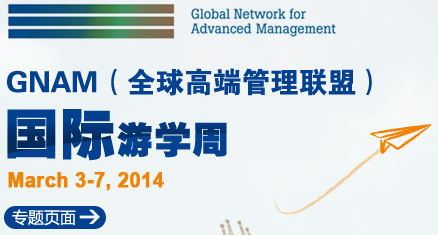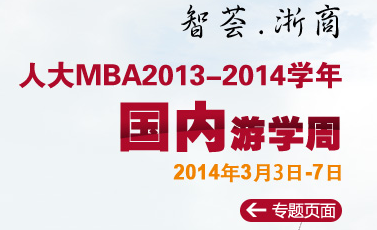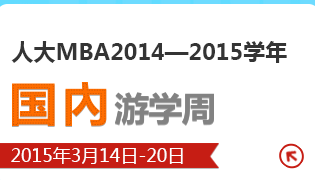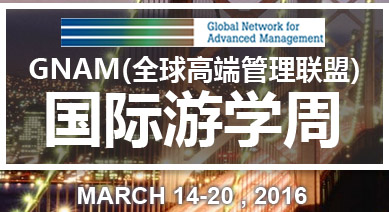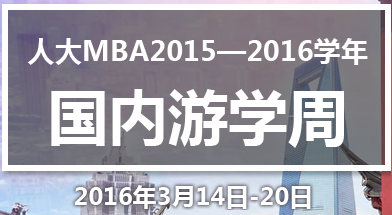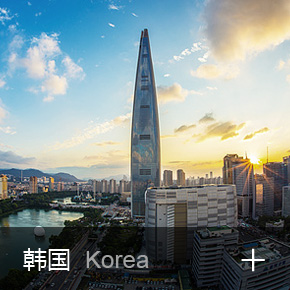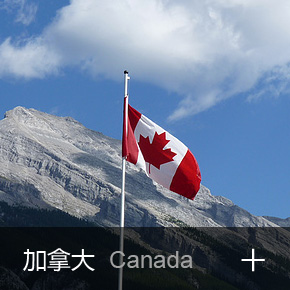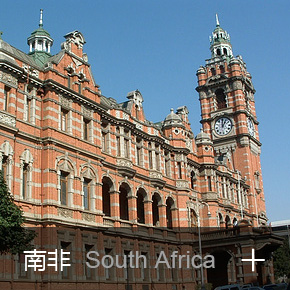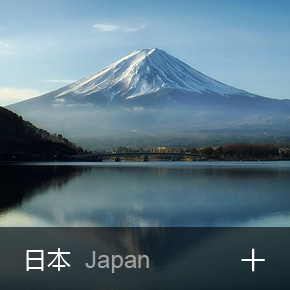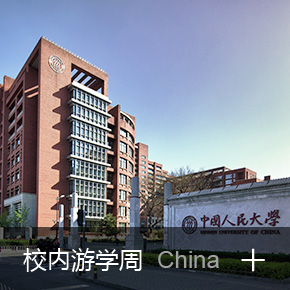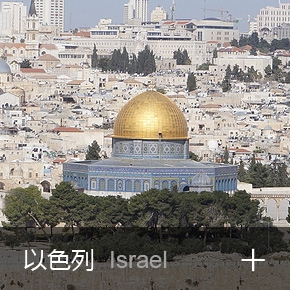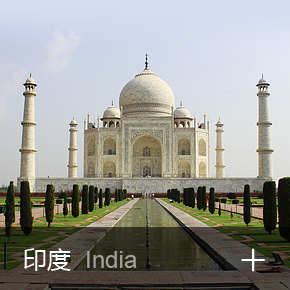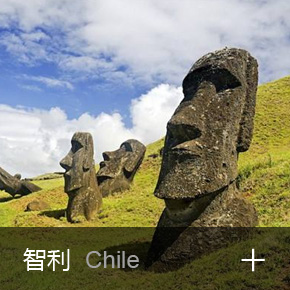| 08:30-09:00 am | Registration (Reception, 3rd Floor, EMBA Center, Huixian Building) |
| 09:00-09:15 am |
Welcome & Introduction to the Program |
| 10:30-11:45 am |
From“Madein China” to “Invented in China:”An Overview |
| 02:00-03:15 pm |
Urban Innovation in China |
| 03:30-04:45 pm |
Patent Laws in China |
| 06:00-08:30 pm |
Welcome Dinner |

Global Network for Advanced Management
美国耶鲁大学管理学院于2012年4月联合世界经济强国和新兴经济热点地区20家顶尖商学院,成立全球高端管理联盟(GNAM)。不同于以往商学院之间的一对一合作,该联盟旨在通过强强联手、资源共享,为教师交流、科研合作、学生领导力的培养、联盟成员之间的双边或多边合作搭建一个广泛的合作平台。联盟成员借助这一平台分享办学经验、合作案例开发、共享教学资料、促进教师互访和学生交流、提升学院的教学质量、科研及国际化水平。人大商学院作为联盟的发起院校之一,是中国大陆地区首家加入该联盟的学院。
每年的3月,全球高端管理联盟院校的MBA 学生将有机会在不同的国家进行为期一周的实地考察与实践类学习,并与当地的企业家、政府官员及商学院师生深入交流。2013年至2016年共有三百五十余名MBA 学生赴美国耶鲁大学管理学院、西班牙IE 商学院、巴西FGV 商学院、以色列Technion 理工学院、日本一桥大学国际企业战略研究院等进行为期一周的交流访问。与此同时,联盟院校的MBA 学员也会同期来访,参加由人大商学院承办的国际交流周活动,人大MBA 学生也可以选择参加为此组织举办的英文讲座及企业参访活动,并与国际学生进行深入交流,了解不同国家的文化习惯及商业做法。
Member Schools
The Global Network for Advanced Management fosters substantive ties among the world’s leading business schools from both economically strong countries and those on the horizon of economic development. Importantly, relationships among network members transcend more traditional bi-lateral interactions with proscribed agendas; each network member benefits from the perspective and intellectual contributions of every other and can use the network in creative ways.
-

Asian Institute of Management
(The Philippines)
-

EGADE Business School, Tecnológico
de Monterrey(Mexico)
-

ESMT Berlin
(Germany)
-

FGV Escola de Administração de Empresas
de São Paulo(Brazil)
-

Fudan University School of Management
(China)
-

Graduate School of International Corporate
Strategy, Hitotsubashi University(Japan)
-

HEC Paris
(France)
-

Hong Kong University of Science and
Technology Business School(China)
-

IE Business School
(Spain)
-

IMD
(Switzerland)
-

INCAE Business School
(Costa Rica, Nicaragua)
-

Indian Institute of
Management Bangalore(India)
-

INSEAD
(France, Singapore)
-

Koç University Graduate
School of Business(Turkey)
-

London School of Economics and Political
Science, Department of Management(United Kingdom)
-

National University of Singapore
Business School(Singapore)
-

Pontificia Universidad Católica De
Chile School of Business(Chile)
-

Renmin University of China
School of Business(China)
-

Seoul National University Business School
(South Korea)
-

Technion-Israel Institute of Technology
(Israel)
-

UCD Michael Smurfit Graduate
Business School(Ireland)
-

University of Cape Town Graduate
School of Business(South Africa)
-

University of Ghana Business School
(Ghana)
-

Yale School of Management
(USA)
-

Haas School of Business, University
of California Berkeley(USA)
-

Lagos Business School, Pan-Atlantic
University(Nigeria)
-

Sauder School of Business, University
of British Columbia(Canada)
-

Universitas of Indonesia Faculty
of Economics(Indonesia)
| 09:00-10:15 am |
Digital Entrepreneurship in China |
| 10:15-10:30 am | Refreshment Break |
| 11:30-11:45 am |
Western Multinationals & Indigenous Innovation in China |
| 12:00-01:30 pm | Lunch Break |
| 02:30-04:30 pm |
Company Visit |
| 09:00-10:15 am |
Zhongguancun’s Innovation and Entrepreneurship |
| 10:15-10:30 am | Refreshment Break |
| 10:30-11:45 am |
E-China Development of the Internet & Innovationsin China |
| 12:00-01:30 pm | Lunch Break |
| 02:30-04:30 pm |
Company Visit |
| 09:00-10:15 am |
Aging in China and the Embrace of Innovation |
| 10:15-10:30 am | Refreshment Break |
| 10:30-11:45 am |
Corporate Social Responsibility in China |
| 12:00-01:30 pm | Lunch Break |
| 02:30-04:00 pm |
ompany Visit |
| 09:00-10:20 am |
Presentations on From “Made in China” to “Invented in China” |
| 10:20-10:40 am | Refreshment Break |
| 10:40-12:00 am |
Presentations on From “Made in China” to “Invented in China” |
| 12:00-12:30 pm | Group Photo |
活动进行时
今年共有75名MBA学生赴美国、加拿大、以色列、智利、南非、巴西等10余个国家进行为期一周的交流访问
-
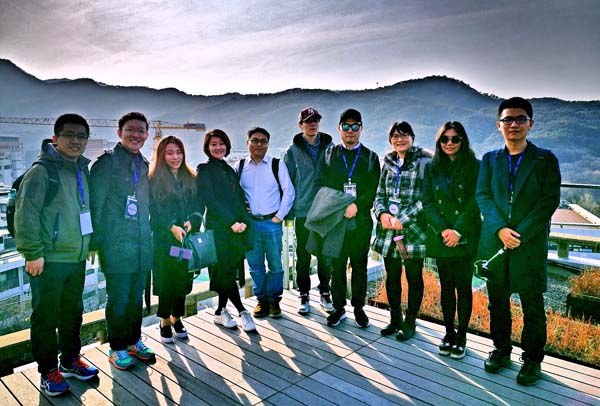
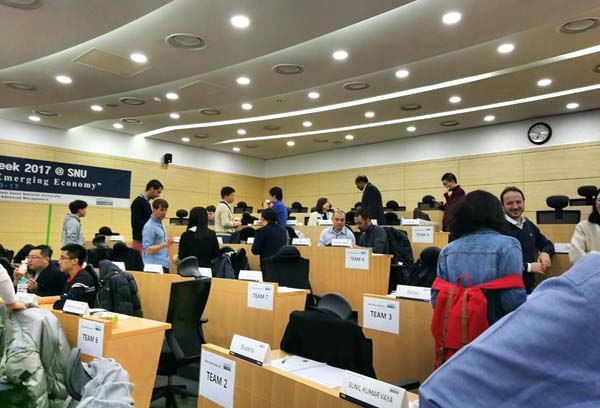
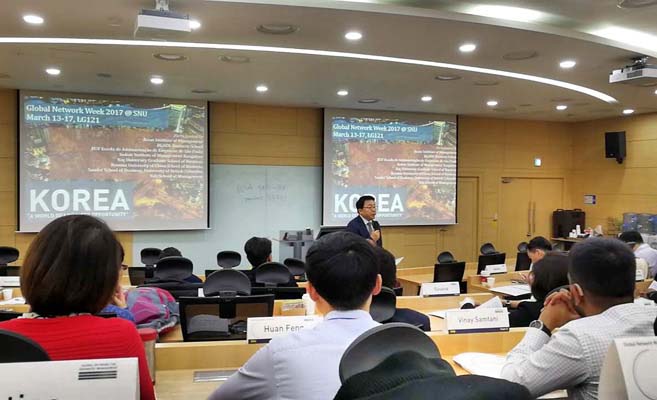
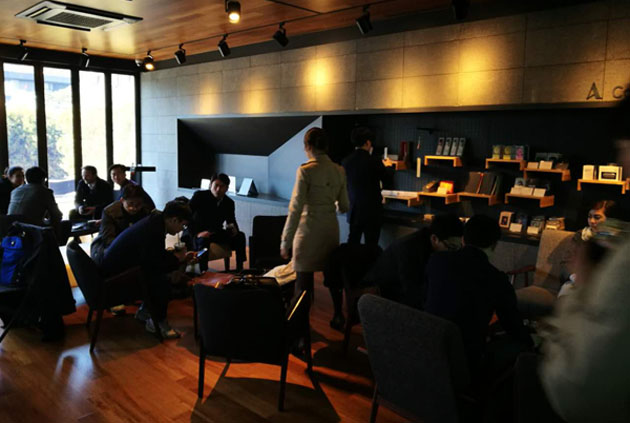

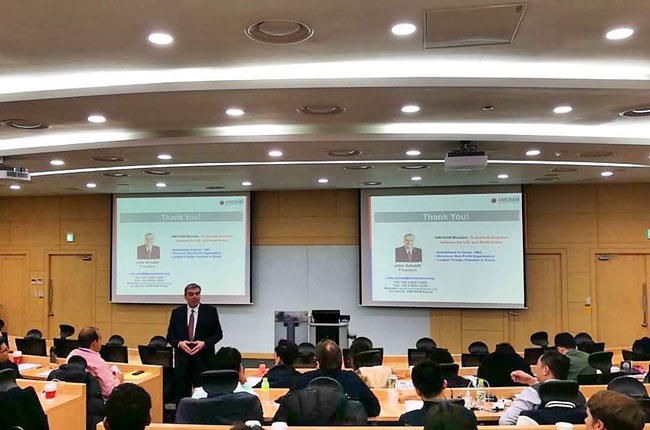 <1/3 >韩国 Korea
<1/3 >韩国 Korea -

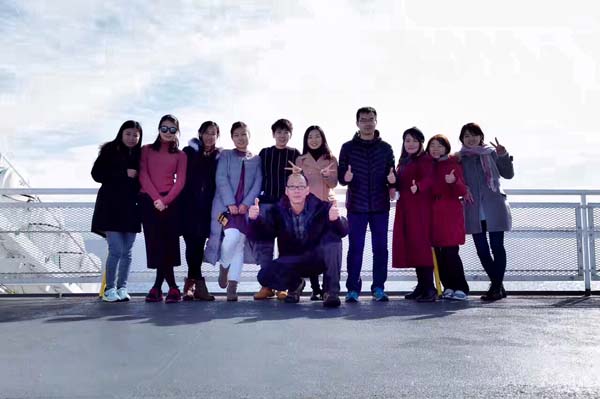
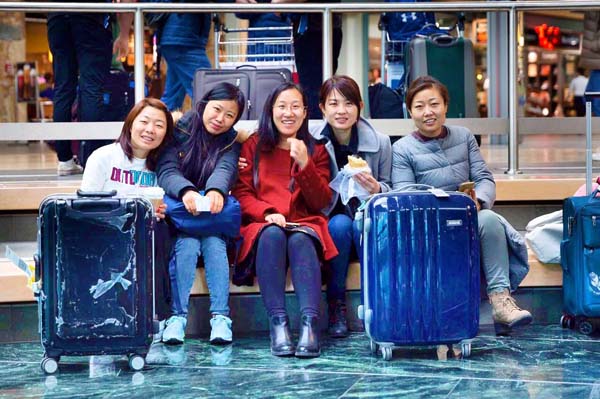
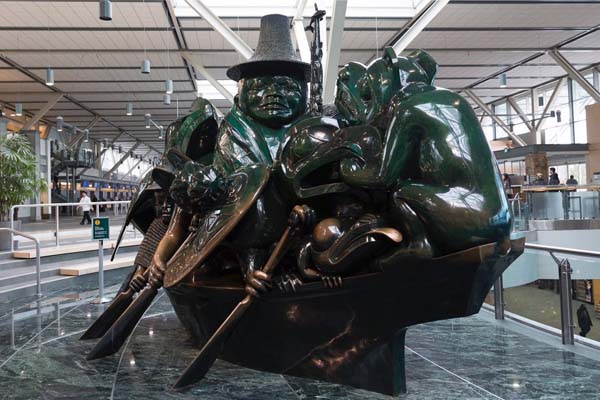
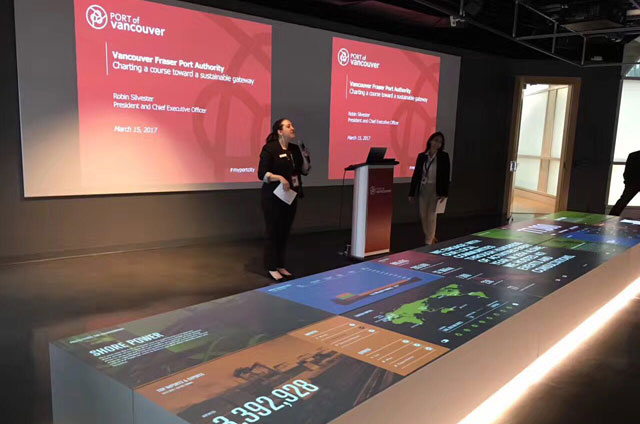
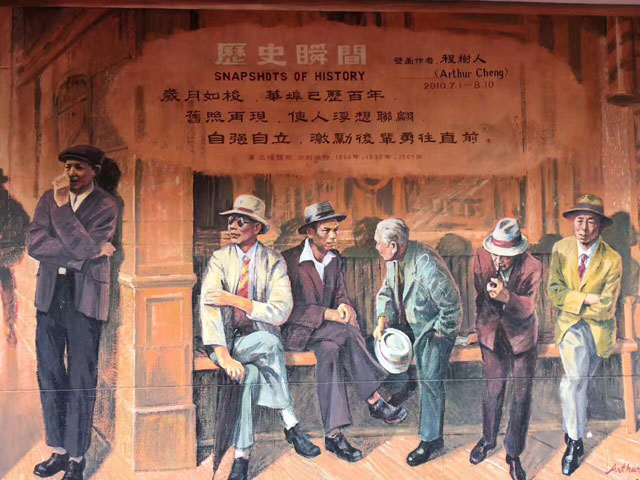
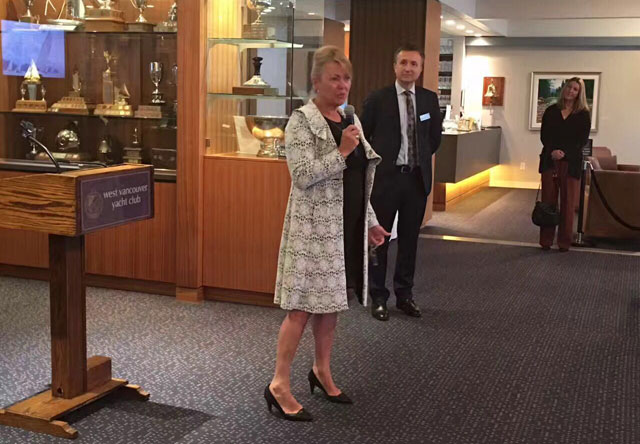

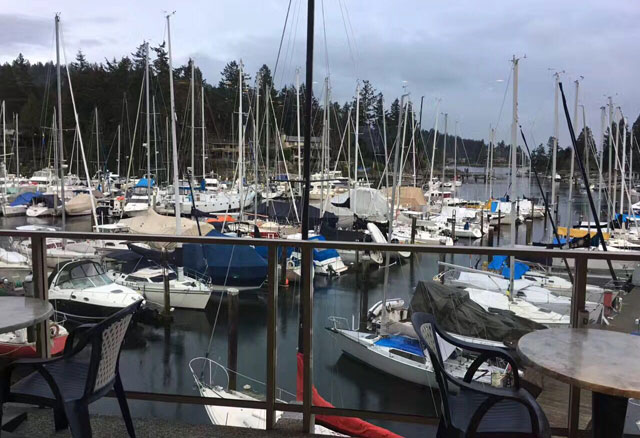 <1/3 >加拿大 Canada
<1/3 >加拿大 Canada -
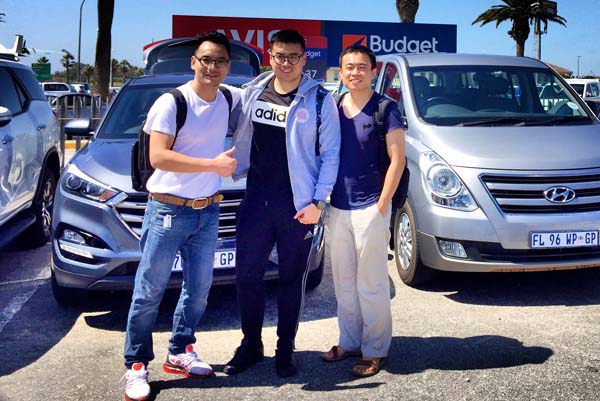


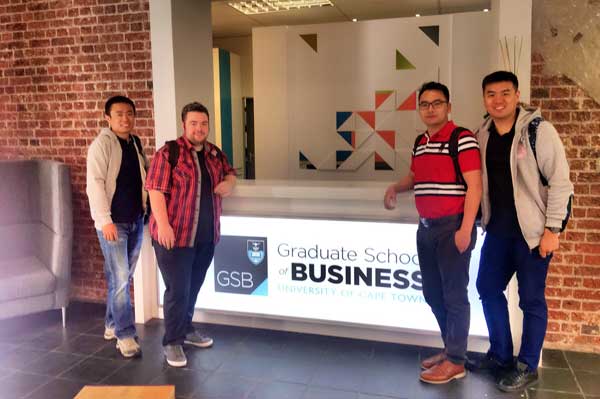

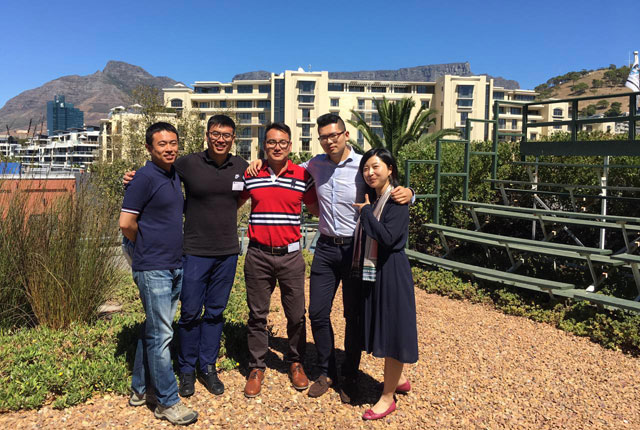 <1/3 >南非 South Africa
<1/3 >南非 South Africa -
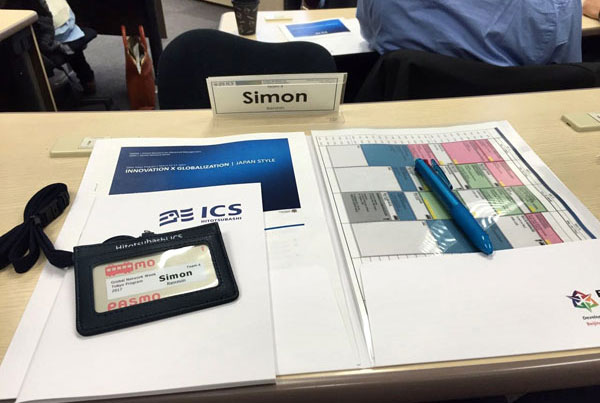


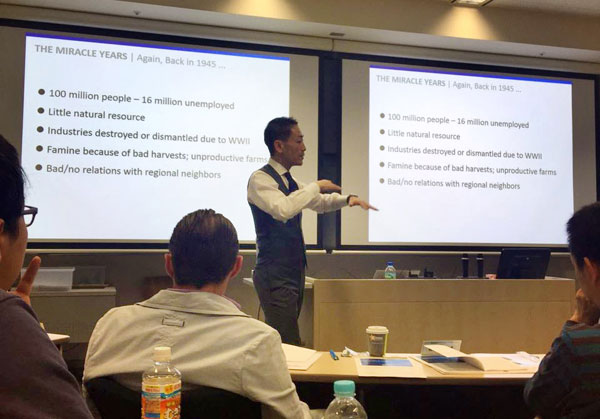
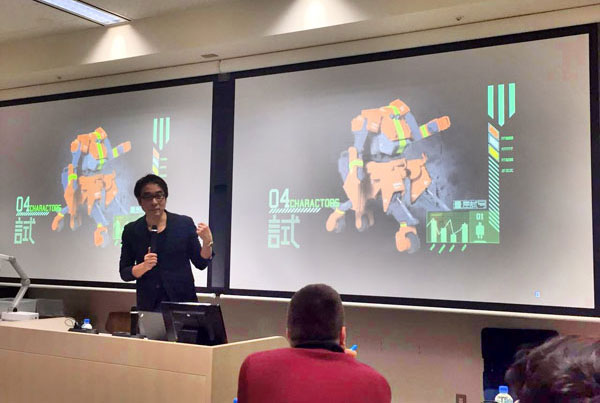

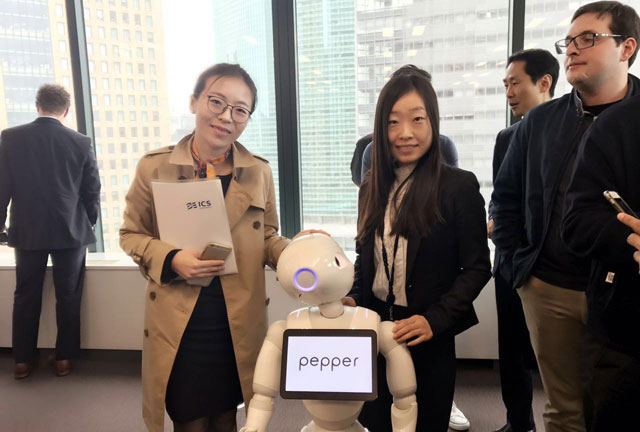 <1/3 >日本 Japan
<1/3 >日本 Japan -
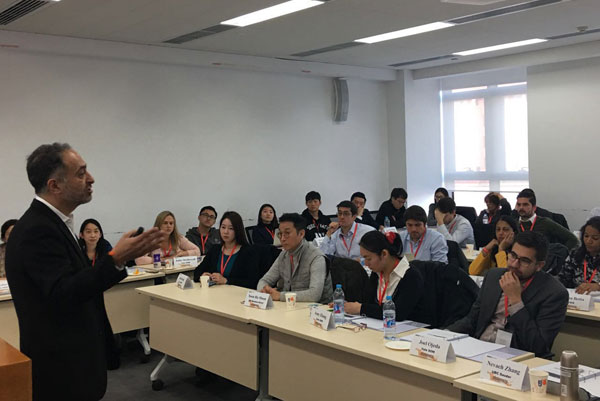
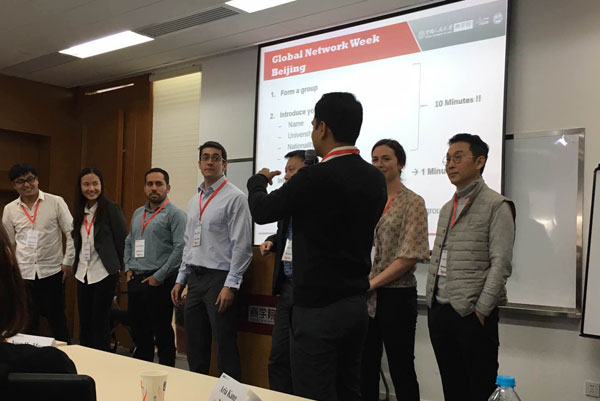
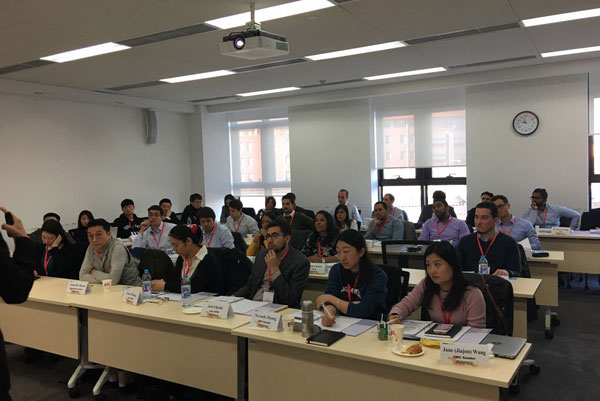
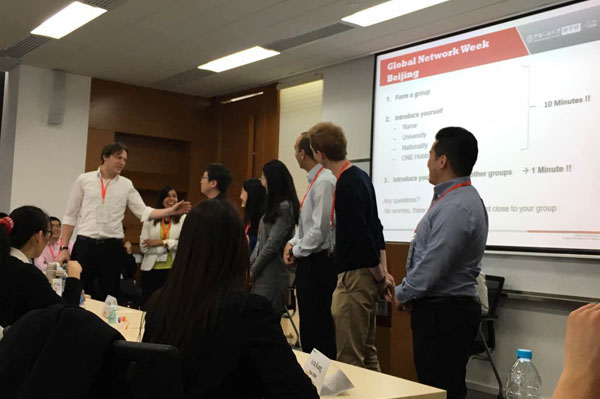
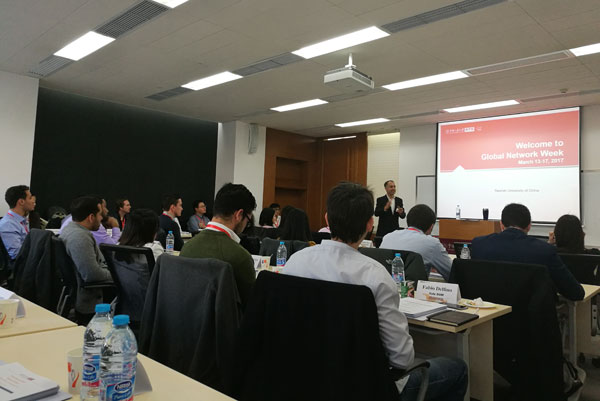 <1/3 >校内游学周 China
<1/3 >校内游学周 China -
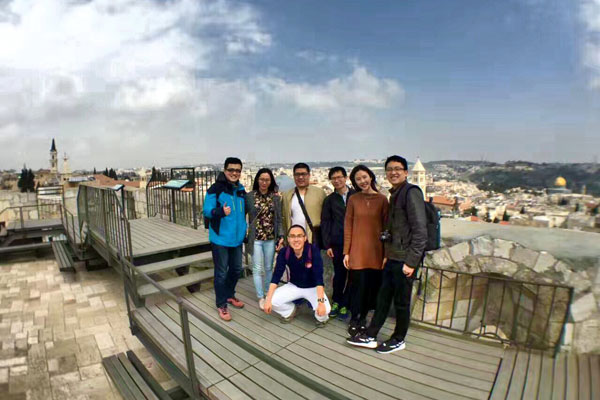

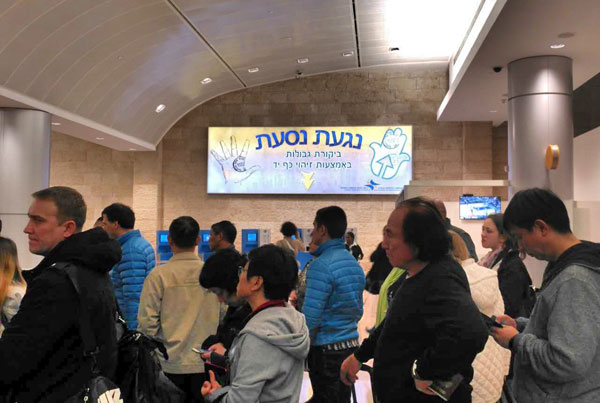 <1/3 >以色列 Israel
<1/3 >以色列 Israel -
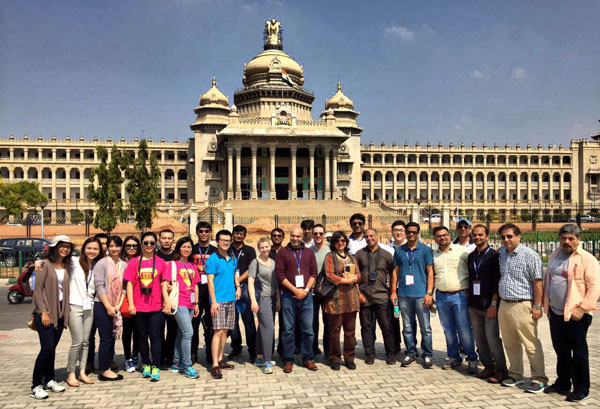
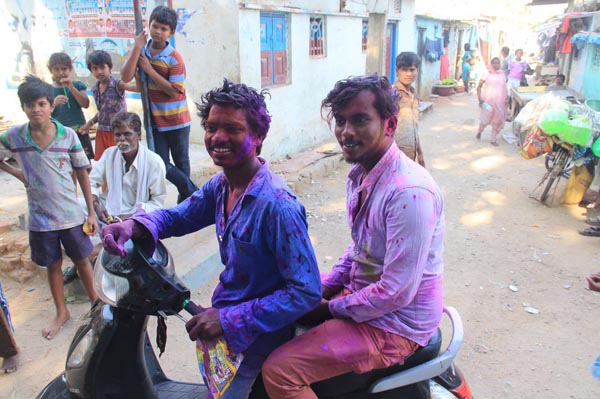
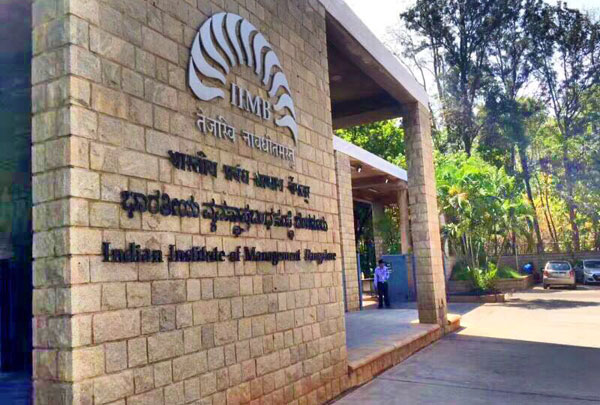
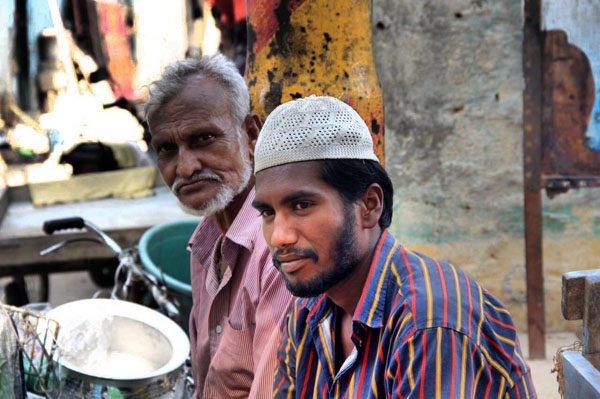
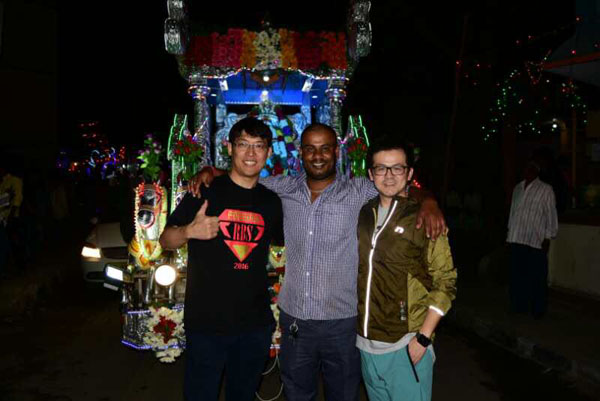
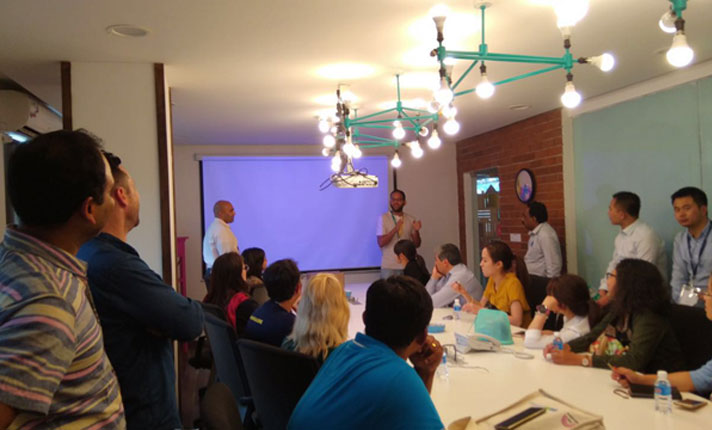
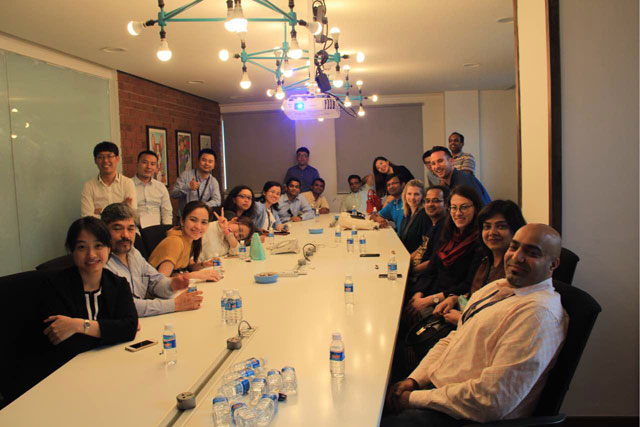
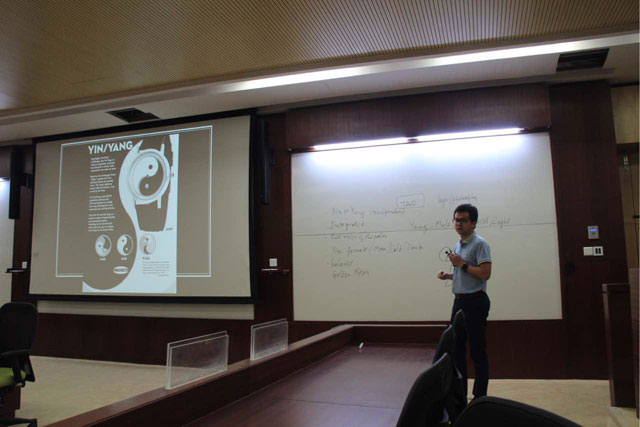
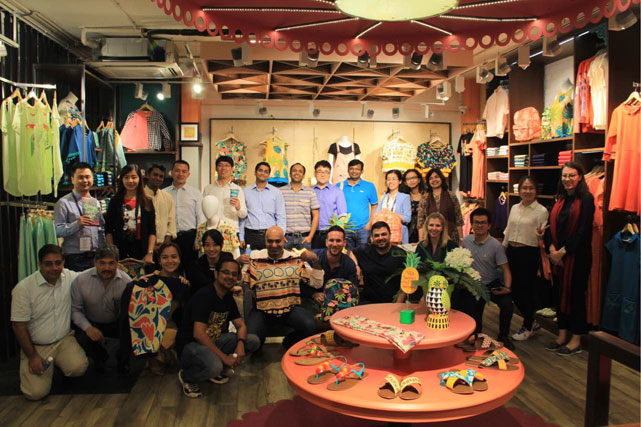
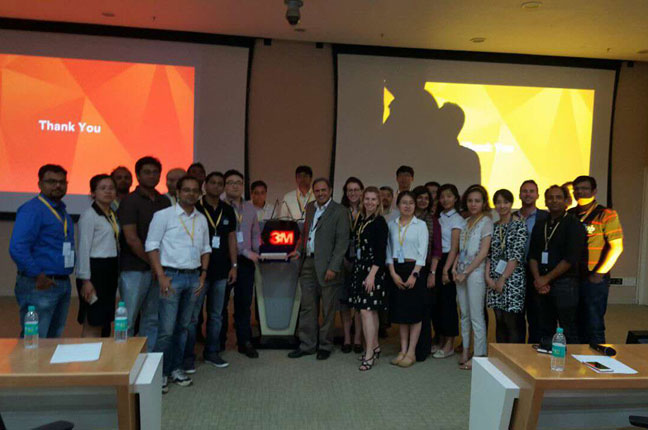 <1/3 >印度 India
<1/3 >印度 India -
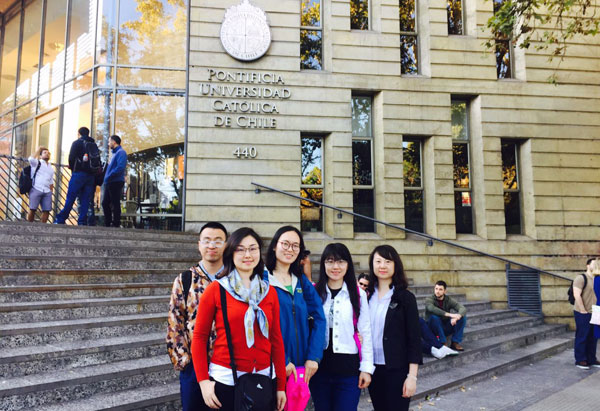

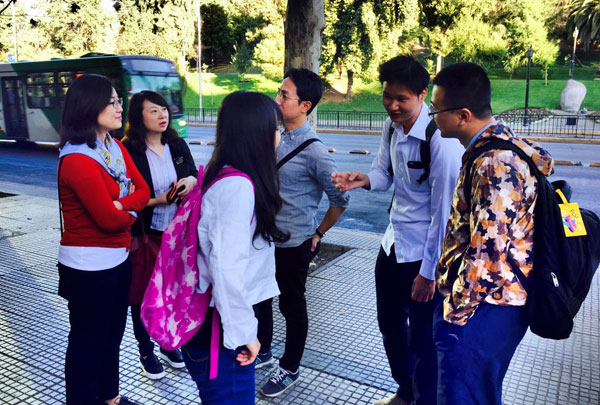
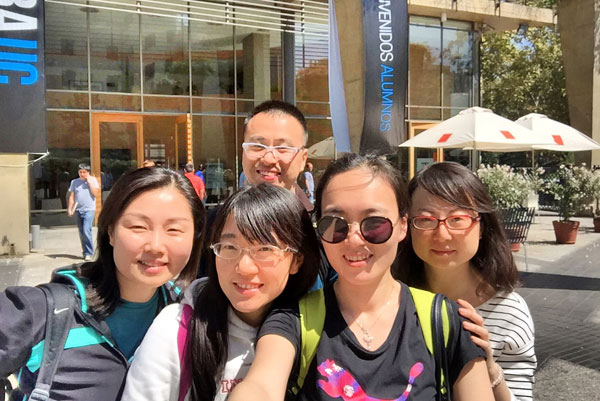

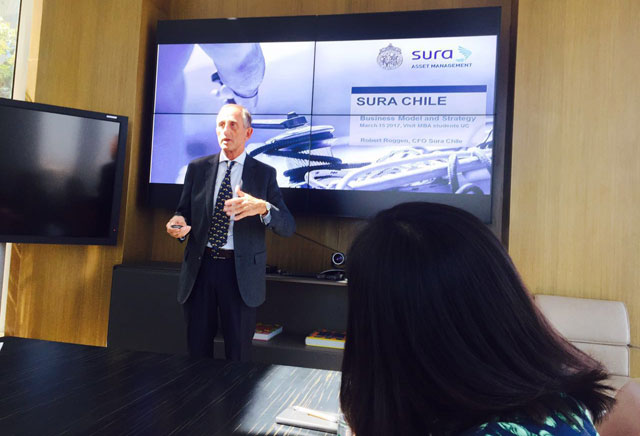
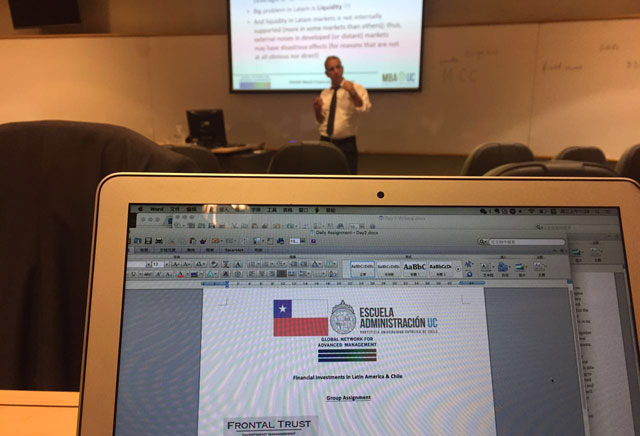 <1/3 >智利 Chile
<1/3 >智利 Chile
-
Development of a Global Mindset in Brazil Brazil Group
After 17 hours of flight, we finally reached São Paulo where everything is a challenge for... 更多>>
-
My Experience at EGADE Business School, Mexico
On March 11th, I started my journey to EGADE business school in Mexico City. Two weeks... 更多>>
-
Unforgettable GNW Experience in Seoul SNU Group
In 2017, from the 13th to the 17th of March, we participated in the Global Network Week... 更多>>
-
Global Reach, World Embrace Gloria Xie
With great expectations of GNW, we headed to Yale in the middle of... 更多>>
-
Developing Cultural Fluency in the IT Capital of India Amber...
Bangalore is situated in the south of India, on the plateau in the center of the country, and is.... 更多>>
-
My Experiences of Global Network Week at UBC Wenping Li MBA...
UBC, the University of British Columbia is a global center for research and teaching, consistently... 更多>>
-
"Innovation" Journey in GNW Tokyo, Japan 2017 Leonard Liu IMBA...
In 2017, from the 13th to the 17th March, 4 students from the Renmin University of China were... 更多>>
-
Global Network Week At RBS Student Voices
We started our Global Network week journey at Renmin University on the 13th Mar, 2017... 更多>>
-
2017年GNAM(全球高端管理联盟)国际游学周序幕拉开
2017年3月13日-3月17日,GNAM(全球高端管理联盟)国际游学周如期而至,前往各国的MBAers各.. 更多>>
-
2017国际游学周各国速递
"Company visits to private equity firm Warburg Pincus and mass media group Hearst... 更多>>
My Experience at EGADE Business School, Mexico
After 17 hours of flight, we finally reached São Paulo where everything is a challenge for three of us. The locals speak Portuguese, there are no words that we can recognize. We can`t stop thinking about how we're going to spend the next 5 days here. But Just five days later, our thoughts have completely changed.

(From left to right) Pengshuo Wang, Cindy Ding, and Richard Zhang
Part 1: DBB——Doing Business in Brazil
The first day in FGV-EAESP, we talked about “Global or Glocal” with Professor Isabela Baleeiro Curado. This made us understand the development of the global company. The following few days, we got to know the culture, financial systems, political environment, enterpreneurship, economic perspectives and consumer markets of Brazil. This was the first time we learned how to do business abroad and how to develop a global company.

Various lectures on doing business in Brazil
Part 2: Visiting Natura
Outside of class, following the program schedule, we visited the biggest global cosmetics company in Brazil, Natura, which was founded at 1969. The company management team gave us professional introductions about their business models, value and strategies. We visited different departments of Natura, such as their production workshop, warehousing department, and sales department. We were so impressed, especially by their regulation that allows staffs to go to work with their children. There are special facilities and staff that can look after and teach these kids. We realized that different cultures affect a companies overall organizational culture too.

Part 3: City Tour
Also, we had an opportunity to visit São Paulo, South America's largest financial center. We learned about the history of different periods and the heros of the city. We saw how the city was influenced by the West, from the architecture to the overall culture. We saw the development of its financial systems, from poverty to rich. And we got to know each of our classmates from different countries.

Taking selfies with our GNW group.
Part 4: Friendship
After only the first day, we had become friends with all our international classmates. We communicated so happily with everyone. We went to the local bars after class and chatted with each other about our work experiences and different cultures. We shared the experience in Brazil. We put different cultures together and understood each other little by little. Finally, we became friends and realized we were all the same despite our origins!

Part 5: The Wrap-up
On the last day, we had to make a 15 minutes presentation to show how a new company can enter the Brazilian market. We have to use what we learned during our week here while also drawing from our past experiences. In each group, we have 5-7 students from different countries: America, China, Mexico, Chile, India, and Philippines.We discussed and we were impressed by the different understandings of doing business. We had so many ideas. We even celebrated the birthday for Emily, a beautiful girl from Mexico, on the last day. It was so sweet.

Finally, we obtained the certificate of completion for GNW from Professor Gilberto Sarfati. The global network week came to an end. But we will come back again, and we will come back better!
My Experience at EGADE Business School, Mexico
On March 11th, I started my journey to EGADE business school in Mexico City. Two weeks before, I had received the agenda and amount of materials of pre-study. According to the schedule, I knew that we would not only sit in the classroom, but also go outside the building to learn the culture of Mexico. At that time, I felt exited as well as strained. On the first day, when I was puzzled and stranded in front of the school gate, two Mexican girls picked me up to the right gathering place. Since their kindness, we made friends with each other. When it comes to Mexican, they are pretty enthusiastic. My Mexican classmates embraced me warmly when we first met.

After a short communication, we started our program. The topic for the GNW in Mexico is "Roadmap for Business Management in Latin America”. The Professor Alfredo Capote would like to show the challenges for multinationals in Latin America at first. He separated us into 6 groups to investigate 6 Latin American countries respectively. The topics included their geography, demographics, economic conditions, business climate, business outlook and so forth. Each team was bound to give a 15 minutes presentation. For my team, we decided to introduce Colombia because of its especial location bordering both the Atlantic and Pacific Oceans in South America. During the group discussion, we found corruption, infrastructure deficit and tax barrier were the challenges waiting Colombia. In addition, the government needs to improve economic performance, keep stable policy and enhance the security of business environment that are useful for economy continuous growth. Finishing all the presentations, I learned much knowledge about Colombia as well as the other five Latin American countries.
Professor Edgar Centeno delivered an interesting lecture on how to build a strong brand. In the department, I was proud to introduce a Chinese snack brand (Wei Long Latiao) to my classmates. At the same time, they expressed a huge interest on the way of the brand operation. In addition, we had an intense argument about how to import the snack to Mexico. While Doctor Edgar was quite interested at this Chinese snack and took part in our team to discuss drastically.

In the upcoming classes, the most impressive thing is that every professor mentioned China so many times. They was surprised at the rapid economic growth in China. At the same time, they emphasized the tight relationship between Mexico and China. Similar with the other developing countries, Mexico is taking advantage of innovation to develop their economy. At Senta Fe, there are many multi-nationals technical enterprises as well as local SMEs. In another word, innovation is the key to dispose of the disadvantage from Trump Administration in Mexico.
As the professor Fernando A. Moya said, entrepreneurs build startups to innovate unique products. However, the commonest mistake of startup is building something nobody wants. In fact, startups are NOT smaller versions of large companies, they are temporary organizations designed to search for a repeatable and scalable business model. What does it mean? The key is how to a company creates, delivers and capture value. So the professor assigned a task to us to get out of the building and interview some students in the campus. We had to collect their problems during a journey and design a demo to solve one of their issues. By this practice, we learned to think as customer’s ways and deliver values to them.

Tequila Museum
Outside of classes, we visited a lot of sceneries in Mexico City which made sense for the Latin American culture. In Teotihuacan, I climbed up the sun of pyramid and the moon of pyramid which are used to sacrifice. In the national museum of anthropology, I learned the ancient civilization of Aztaka, took photo with the stone of the sun which is the most precious antique. However, it is a pity that we don’t have enough time to go through the huge museum. Comparing with the historical site, joining in the network night activity is amazing. My classmate and I visited the tequila museum and enjoyed the classical songs which were sang by local musicians.

Ancient pyramids and having a drink at the Tequila Museum
In the end, the most exited thing is that our team won the final presentation and gained an especial prize. It is the perfect circle to my global network week. All the experience is unforgettable for me and I begin to miss my overseas friends a little bit. In my mind, GNW should be the best way to be involved, if you want to connect to global economy and global community.

Day of the final presentation with teammates
Unforgettable GNW Experience in Seoul SNU Group
In 2017, from the 13th to the 17th of March, we participated in the Global Network Week (GNW) program at Seoul National University (SNU) as representatives of Renmin University students. The five day program was very meaningful and full of joy.There are mainly three types of activities we were involved in during the program.
Lectures

Seoul National University invited a number of professors, business mentors and business leaders to the GNAM project. They had given lectures on the situation of Korea’s companies from different perspectives. To better understand Korea’s business, it would be wise to study Korea’s history first. South Korea has experienced feudal rule period, colonial period, civil war, and then the Korean peninsula was divided into two countries: North Korea and South Korea. These historical processes have great impact on South Korea’s culture and economy. In the history, South Korea had got a lot of benefits on economic development through the communication with China, Japan and the United States. But now South Korea is facing a difficult foreign policy choice with these countries.
The rapid development of the Korean economy has created a number of chaebol, and these chaebol have almost all control over the country's economy. They can even have a great impact on the political decision-making. But the corporate governance structure of these chaebol is still family owned. They secured the hold of the companies with cross-shareholding so that the company can be inherited by descendants. This type of structure keeps violating the interests of small shareholders. How to strengthen the transparency of corporate governance is an urgent task that Korea government is trying to make out. But the process is very slow.

There are many things we can learn from Korea’s company. Samsung is one of the best representatives of Korea’s companies. Samsung has integrated the characteristics of Japanese and American companies. The organization form is big but the company can be speedy decision making and execution based on family ownership, goal stretching, shorter decision steps, IT-based process innovation and etc. The strategy is highly diversified yet globally competitive in some specialized areas. They integrate the management system of Japan and the United States, to create a management system with its own characteristics such as coexistence of seniority-based and merit-based promotion and compensation, mostly standardized and some individualized incentives.
Company Visits
Company visit always one of the most excited part of GWAM, by which we could understand local company more deeply, and gain experience that very hardly to learn from the lecture. We visited LG display, Iriver and Honda Card.
In LG, we felt very warm when the company staff gave us White Valentine’s Day gift. Even the gift was very small, but we still felt the strong company culture of LG. During the Iriver visit, we learned how a traditional MP3 producer succeed in a niche market. And we felt that the strategy they adopted was very illuminative. Which bring us a live case of strategy management. And we also shocked by the creative marketing promotion of Honda Card, which invest an automatic credit card producing line in their head office, and allow credit applicant witness how their card be produced.

(From left to right) LG Display, Iriver, and Honda Card.
Cultural Experiences
The best way to learn about Korea's traditional culture is to experience it firsthand.

The cultural Program offers us all an opportunity of exploring Korean culture by making and eating Korean food, dressing in hanbok and seeing the musical show. Bibimbap is a popular Korean dish. The word literally means "mixed rice" or "mixed meal". Bibimbap is served as a bowl of warm white rice topped with sauteed and seasoned vegetables, beef, a fried egg, and gochujang (chile pepper paste). Vegetables, like soybean sprout, zucchini, carrot, mushrooms and onion are cut into matchsticks and fried respectively, and so is the beef , and then they are put on top of the rice with a fried egg. The ingredients are stirred together thoroughly just before eating. We enjoyed the bibimbap that we had made in the course.

Hanbok is the traditional attire of the Korean people. Worn daily up until just 100 years ago, these days it is only worn on festive occasions or special anniversaries. Hanbok expresses Korea’s true characteristics in terms of culture and history. We all enjoyed these beautiful garments.

Kimchi is another kind of traditional food in Korea. You can see it everywhere in Korea’s dining table. GNAM program offers us a special opportunity to learn the method of making Kimchi. Celery cabbages should be pickled at first. And then, cutting radishes, chives, hot peppers, small shrimps into the bowl, adding oil and other materials to celery cabbages, mixing all the marerials of food together. The Kimchi is finished. It tastes a little spicy and it will work up an appetite.

As a long historical country, Korea has its own food culture, not only making food, but also have various of " eating culture", for example, the musicial " Bibap". As we know, there is a advanced entertainment industry is Korea. Korean people are acoomplished in composing music.dance and other types of art. The musicial "Bibap" is a best sample. Korean artists using their traditional food culture Bibap as the theme of the musical, and using for reference other artistic form like B-BOX, A Cappela, chorus, Jazz music, Street dance, Soprano, etc. They offer the best ornamental effect to our audiences and let we know the actual K-pop in Korea.

At last, this is a group photo we took in Seoul National University.
Developing Cultural Fluency in the IT Capital of India Amber Yang & Marion Racine IMBA Class of 2018
With great expectations of GNW, we headed to Yale in the middle of March, 2017.
Multi-cultural Environment
This was the first time for me to meet so many people with such great variety and diversity. 25 countries, representing 72% of world GDP. Although I have worked in multi-cultural environment for years in China, I must say that it was really a different and wonderful experience for me this time. People from almost every corner on this world, with different accents, different habits, different ways of thinking. But what the same was that every one of us was self-confident, open-minded and well-educated. It was so amazing.

Our big Global Network family.
Studying in Yale
There were a total of 7 students from RUC involved in this big event, separating into two different programs: Behavioral Science of Management and Design and Innovation. I was in the first one. We had 6 courses in this program, Understanding Consumer Experiences, Negotiation Mindsets, Brand Building Bases on Behavioral Science, Influence and Persuasion, Framing Effects Context Effects and Choice Architecture, Overview of Behavioral Finance. These courses explain how behavioral science exists in different parts of management/business, and how we could use this science to do our business or improve our management skills. All these professors are world’s leading scholars in these field. We did obtain a lot from them. Some points have widely broadened our minds. There were two courses impressed me the most.

Classmates Renee He, Tony Zhang, and myself during GNW.
The first one was Influence and Persuasion by Zoe Chance, Assistant Professor of Marketing. She was my favorite professor among all the ones we met in Yale. She was charming, with smiling face and good manners. “Her research findings have been published in top academic journals like Proceedings of the National Academy of Science and in popular media like Harvard Business Review.” The ideas she spread in class are the most selected ones in our final group presentations.
From her class, we knew that people don’t like to be told what to do or not to do. We could not change someone who does not want to be changed. So, when we want to negotiate with others, firstly we need to show our understanding and respect to them, and after that we could then tell our opinion to them. In fact, for every one of us, we should know who we are and what we want to do or change. We need to ask ourselves that how I could balance my energy and time to reach a better self. She also showed us the reciprocity among different people. The point on GIVER TAKER and MATCHER was very interesting.
The second one was Understanding Consumer Experiences by professor of marketing, Gal Zauberman. “Pleasure is not everything. Be meaningful to everyone.” His words impressed me a lot. This is true. Especially for the ones like us. I think almost all the MBAers are the ones who has ambition, who has higher expectation on themselves. What we pursue is a meaningful life, although the process of it could be very tough. Such as this time, we flied over the North Pole and went across half world to be here, 12 hours’ differences of the time made me feel very bad. But, I still felt so excited since I thought it was meaningful to me.

(From left to right) The wonderful Professor Zoe and Professor Gal
Company Visits
The company visit day was a really wonderful day for us. We took trains and subways to go to New York for company visit. And after that, we went to Times Square, the significant place of New York.
The first company we visited in the morning was a PE company named Warburg Pincus. Several top-level managers gave us an excellent presentation on their company and business. The point most impressed me was that their business in China. They had done their business in China for 25 years long, and they got 24% of their profits from China market thanks to the opportunities of entrepreneurial environment here in China. I felt proud at that time since I am a Chinese and absolutely China had tremendous development during the recent 30 years which draw attention of all around the world. So proud on this.
The second company we visit in the afternoon is a Media company named Hearst Corporation. Its magazine ELLE is very famous and well spread in China. They prepared the event very well. Their former CEO/President George J. Green, their SVP Lincoln Millstein and Jeannette Chang, formal Editorial Director Ellen Levine, showed up in the event. And their spirit impressed me a lot. They are all aged person. But the positive attitude and status spread from them was amazing. I do hope I could have such wonderful spirit and life when I am aged.

After the visits, we went to Times Square by ourselves. The street there was a little bit narrow but very luxuriant. The huge screen impressed me a lot. And I also found an advertisement of XinHua News Agency on one screen.

AD of XinHua News Agency
Yale Campus
The campus of Yale is so amazing. Many ancient buildings are scattered on the campus. The most famous one is its libraries which impressed me the most. The biggest library is Sterling Memorial Library which like a huge church. It has a book tower which contains about four million volumes. And there is another modern library named Beinecke Rare Book and Manuscript Library which contains rare and historical books and manuscripts. I took several pictures on these libraries. Besides the libraries, we also went to Art Museum, book store and some other interested places.

Sterling Memorial Library

Beinecke Rare Book and Manuscript Library
The End
Above all, it was really a fantastic journey for all of us. We all tried our best to involve in the topics and discussions and did obtain a lot during the whole process. I am so glad that we could have this wonderful chance to be here in Yale in GNW. Reach the global, embrace the world! Let me ending this blog with the picture of our little family. Thank you for your time reading my blog.

Developing Cultural Fluency in the IT Capital of India Amber Yang & Marion Racine IMBA Class of 2018
Bangalore is situated in the south of India, on the plateau in the center of the country, and is the capital of Kanartaka. The city, with its population of 11 million, is busy and dynamic. In fact, most large IT companies have at least one office located there, attracting employees from all around the country and stimulating an exponential. The infrastructure has hardly kept the exponential development of the capital. Bangalore is the symbol of an India in emergence, connected to the world and oriented toward the development of a service economy: a perfect environment to develop our cross-cultural management skills.

Learning about India through the street of Bangalore
The week-long learning started with a welcome dinner IIMB’s campus, sanctuary of nature and beauty in the busy city. The morning after, we all joined a tour of the city of Bangalore. We visited the amazing park where kinds of birds flying, squirrels running on the trees and even big ants fed by kind people. We experienced the power of negotiation when we went across the busy street which was full of cars, motors, tutuks and pedestrians. We learnt the organized chaos in the biggest flower supplier’s market, which represents one of the most important India incorporate.

The most amazing experience is that our first tour in Bangalore is Holi festival and we were so lucky to experience the big event with local people.
“What do you do when you see bumps ahead?”
The week with Professor Ritu Tripathi started with this question. Globalization has diminished and eliminated many difficulties for businesses expending their operations abroad. Nevertheless, managing across culture still represents a big challenge, but knowing that there are the bumps coming ahead, managers can prepare for it to go over smoothly and avoid damages. Indeed, doing business in a new collecting programming of the mind pose difficulty and require developing a strong cultural intelligence. Being culturally fluent means being able to make small, but meaningful behavioral adjustments helping us to achieve desired outcomes.

Putting into perspective our cross-cultural experiences
During the week in Bangalore, we deconstructed our experiences of dealing with classmates, friends, teammates and coworkers from different culture, and reconstructed them through new theoretical frameworks. Days of discussions with international students from all around the world as well as Indian students from various provinces and backgrounds enlightened us on our culture and others’, but also on ourselves. Learning how, in a cross-cultural environment, to communicate efficiently, to adapt our behaviors without feeling inauthentic, and use cultural differences as a leverage are example of skills we developed during our five-day training. On top of that, we made amazing friends with whom we share a unique and unforgettable experience.

My Experiences of Global Network Week at UBC Wenping Li MBA Class of 2018

UBC, the University of British Columbia is a global center for research and teaching, consistently ranked among the 40 best universities in the world. Located 30 minutes from the heart of downtown Vancouver, the campus is a spectacular location that is a ‘must-see’ for any visitor to the city. UBC Sauder's Robert H. Lee Graduate School offers the UBC MBA program, which is ranked among the world's top 50 Global Elite in the QS Global 250 Business Schools Report. This time I had a chance to study in such a fantastic university with students came from other first class business schools around the world. Now I’d like to share my thoughts based on my week in UBC.
One of the Global Network Week programs at UBC focused on Urban Resilience, 48 students from 26 universities of 27 countries were divided into seven groups, each group chose their own issues from 9 topics under the main theme. The whole schedule of the week can be roughly divided into three parts, the first one is Official course kick off, lecture was given by professors and our clients to make sure we fully understood the program. The second part , discussion with team members to arrange our own schedule, and visitor the places related to the issue we chose. The third part is also the most important part: fun time for students from all over the world getting to know each other more and explore the culture of Vancouver.

As team NO.5, we chose temperature and storm water as our issue,try to tackle with the problems Vancouver encountered due to the climate change. During the discussions, we met 3 people invited by UBC to help us with the program: Tahia, faculty of UBC , interested in our issue; Daug, professor of UBC ,working on storm-water recycle system for years; and Lilian, faculty from the government of Metro Vancouver, in charge of the environment policy. After two days discussion,and with the help of our client Ralph,we wrote our logical frame work of our scheme. As an additional section, we had a city tour to the Chinatown of Vancouver,and work together with other teams to give a resilient plane for Chinatown. After the tour, we had lunch in Chinatown together, and the picture below shows the spectacle of teaching the foreigners how to use chopsticks, which they actually performed quite well.

After four days hard working on the issue, we finally raised a solution scheme, and presented it in front of the whole global team. This is my first speech in English, I was nervous but excited that I did it well enough actually. After the long week working together , we encountered a precious sunny evening in Vancouver,so we decided to have a walk alongside the beach which is just 10 minutes’ walk from the main road of the campus, amazing! In my opinion , UBC must be the richest university in the world since it even own the Pacific. This is the end of sharing. One week is not that long but enough to bring GNAM university students all over the world together and share opinions from diversity. I feel so grateful to the School of Business, Renmin University of China offering me such an fantastic chance to go to UBC. Best wishes for GNAM universities being better and providing more and more such opportunities for their students.

"Innovation" Journey in GNW Tokyo, Japan 2017 Leonard Liu IMBA Class of 2018
In 2017, from the 13th to the 17th March, 4 students from the Renmin University of China were invited to attend the Global Network Week (GNW), Tokyo Program which was held at the Graduate School of International Corporate Strategy (ICS) of Hitotsubashi University. Global Network Week (GNW) is an initiative of Global Network for Advanced Management (GNAM), an alliance of 29 top business schools around the world. GNW Tokyo Program, hosted by Hitotsubashi ICS, is centered around the theme: "Innovation x Globalization: Japan Style." Hitotsubashi ICS was established in 1998 and is located at a campus in central Tokyo (Chiyoda Campus). It is a graduate school of business administration within Hitotsubashi University, a national institution of higher education under the jurisdiction of the Japanese Ministry of Education, Culture, Sports, Science and Technology (MEXT).

GNW Tokyo Kick-off Excercises
On morning of 13th, March, Sixty MBAers from GNAM partner schools gathered at Classroom 2 on the 6th floor of ICS building for the GNW TOKYO kicking off meeting. Professor Yoshi Fujikawa gave us warm welcome and let us do team building exercises to get to know with each other. Then, the GNW Tokyo program officially started. GNW Tokyo Program consists of three elements: (1) Foundation Sessions, (2) Company Sessions, and (3) Field Visits. We gained different knowledge and hand-on experiences about Japan’s culture, business, and economy from the three sessions.
Foundation Sessions
During the week, the professors from ICS and businessmen from well-known corporation in Tokyo give lectures about Japan’s Innovation, Culture, and Knowledge Management etc. 60 students were divided into 8 teams to discuss the cases from the lectures.

Professor Yoshi (left) and Professor Emi (right) is giving lecture about innovation
Professor Yoshi gave us a lecture about Japan’s innovation system; we got the basic understanding about the Japan’s history and various challenges and opportunities facing Japanese business and economy, and some of the major economic and business issues that characterized this country and city today. So we could know better that why Tokyo has been the innovation engine for the Japanese business and economy. In Professor Emi Osono’s lecture, we discussed why some industries become competitive in Japan while some don't, and explored what makes a country or a region competitive in a particular industry. In the end, it helped us see the factors that are working to enhance competitiveness of a cluster. From the standpoint of cluster, we tried to find Japan's competitiveness so far and predict Japan's competitiveness in the future.
Lecturer Motoko Kimura and Mina Nishisaka provided us with a framework of key concepts in Japan including Zen and Bushido (the way of the samurai). By unraveling the roots of each concept in history, its essence and how they are interrelated, we better understand the virtues behind people’s behaviors, including the Japanese way of getting business done. And by understanding the Japanese culture, we discovered that how our Chinese culture rooted in Japan and evolved at a deeper level.

Motoko Kimura and Mina Nishisaka are giving lecture about the Traditional Japanese Culture
While Takaaki "Tak" Umezawa (Japan Chairman and Partner, A.T. Kearney; Member of Cool Japan Strategy Council, Government of Japan) helped us take a look at “Cool Japan”, which gives us a total different view about the growing international interest in Japan, and showed us what is about in the fields of media content, fashion, cuisine, other popular cultures and inbound tourism etc.

Umezawa is giving lecture about “Cool Japan”
We’re also honor to receive a lecture on knowledge management given by the Dean of Hitotsubashi ICS, the Professor Kaz Ichijo. We were introduced to "knowledge-based view on organization," which has been developed originally at Hitotsubashi ICS and is now being studied widely around the world, with references to concrete cases of leading companies in Japan and beyond. We also understand deeply that “knowledge creation” is becoming increasingly important for success and sustainability of organizations, especially when it comes to innovation and globalization strategies.

Dean and Professor Kaz Ichijo is giving lecture about Knowledge Management
Company Sessions
During the GNW, we were provided great opportunities to visit Japanese leading companies, such as Softbank, Honda, Procter & Gamble, MUJI(無印良品), GE Japan, to see how the company is basing some of their COEs (Centers of Excellence) as part of their global strategy, how innovation process was managed, what are opportunities and challenges involved in doing business in Japan, historical changes over time, in the field of humanoid robotics, retail, service and quality control etc.

Humanoid Robotics: Softbank’s Pepper (left) and Honda’s Asimo (right)
In the Q &A session, by asking questions to the managers from varieties of Japanese firms, we deeply understood the globalization, their operation philosophy, emphasis on environment, recycling, and sustainability, and brand policy.

Communication with Top Managers from P&G, Honada, GE Japan and Muji
Field Visits
The purpose of the field visits tried to equip us with hands-on experiences and direct observations of different - both traditional and cutting-edge - parts of Tokyo, such as Asakusa, Akihabara, Harajuku, Roppongi, Shibuya, Shinokubo, and Sugamo areas. We were divided into small groups of several members and chaperoned by an ICS student or ICC field guide to enjoy a variety of local experiences Tokyo.


(From left to right) Akihabara Electric Town, Nakamise Street, Japanese Food and Engakuji Temple
One of unique experience we had was at Engakuji Temple, one of the prestigious head temples of Zen Buddhism in Kamakura, we experienced a Zen meditation session led by Buddhist Priest Ichido Uchida. It is unique experience to use our five senses to fully engage in the Zen meditation experience, following the Zen meditation session, we also visited Tsurugaoka Hachimangu, a historical shrine established in 1063, located at the center of Kamakura, which let us exposed the ancient Japanese culture.

Zen meditation session led by Buddhist Priest Ichido Uchida
Finally, there comes wrap-up session. The GNW Tokyo not only brought us hands-on experiences, but also the knowledge about Japan’s business and culture. In just one week, we established precious friendship with global friends and we will treasury the memories we had this week. The program really helped us see unique innovation & globalization challenges facing Japanese business and economy through exposure to a variety of corporate practices and market phenomena in Tokyo and Japan.

Wrap-up session of GNW Tokyo, 2017
We won’t forget to share what we have learned in the GNW with our classmates in China to be a bridge for both China and Japan, to let more people better understand Japan’s business.
Thank you, ICS! Good Bye, GNW! See you, Tokyo!
Global Network Week At RBS Student Voices
A Global Experience Right at Home
We started our Global Network week journey at Renmin University on the 13th Mar, 2017. As the hosts here, we participated in lectures and company visits about from “Made in China” to “Invented in China” with 41 students from all around the world, which was an unforgettable and wonderful experience.

Students from 11 schools gather here for Global Network Week at RBS
I find that the most interesting part of GNW at Renmin is company visit. Though a Chinese, I have never visited Baidu or JD, probably because these two companies are located a bit far away from downtown Beijing. Thus, it was a great opportunity for me to visit the pioneers as well as benchmarks of Chinese innovation companies and to learn more about Chinese innovations.
From the Baidu visit, we were astonished by man-machine interaction that Baidu had researched and developed. It would definitely transform the way we use mobiles in the future. We also tried out some of the high-tech products invented by Baidu, including smart search etc. Most of the students were extraordinarily surprised at how the company could develop such magical technology. Although I had been using Baidu Search almost every day, I had never explored such wonderful functions until I learnt them from company visit.

(Left to right) Touring Baidu's exhibit hall and listening to a talk on their newest technology, Duer OS
From JD visit, we learnt that JD is now the second largest B2C E-commerce platform in China only after Tmall and is growing at more than twice the industry growth rate. JD guarantees product quality & authenticity by implementing a strict zero-tolerance policy toward counterfeit goods. It also adopts innovative technology to power smart logistics, including smart supply chain, data-based operations and automated operations. The efficiency can be reached to the extent that if one orders a product in the morning, he will receive his package in the afternoon. No wonder an increasing number of people will purchase products on its platform on a weekly basis and even daily basis.

(Left to right) Great introduction to JD and a Drone that will be used to deliver packages in the future.
Not only myself, but also foreign friends from other GNAM schools were extremely interested in the innovations made by Chinese blue-chip companies. After company visit, my sense of pride for Chinese innovations and development becomes stronger.
-Glenda Gu & Luke Wang (RBS MBA Class of 2018)
A precious experience on GNAM Global Network Week in Renmin University

As an international student, I chose to stay at Renmin for GNW because I wanted to learn more about business in China, but over the week I ended up learning more about international business than I ever expected to. We were lucky to have students from a rich mix of countries, including Israel, India, Mexico, Canada, Japan, and several more. From the Israeli students, I learned about the advanced technology industry of Israel and the stark cultural contrast between the cities of Tel Aviv and Jerusalem. In our lectures, I got a taste of the curriculum at UBC and Yale as my global classmates asked insightful questions based on their previous learnings. Spending time with my Latin American classmates after class, I even practiced listening to and speaking Spanish! I went into the week expecting to learn more about China from the inside out, but my biggest takeaway from the week was to gain a much better understanding of what business leaders around the world think and know about China. As someone who plans to have a career in international business tied to China, this information is invaluable to me so thanks to everyone for a great Global Network Week at Renmin!
-Jack Lauroesch (RBS IMBA Class of 2018)

I knew that Global Network Week in Renmin University would be so great. Even when I experienced it, it was beyond my expectation. This is my first Global Network Week, and I want to share several precious moments that I had from it. On the first day, I met a lot of new friends. They were coming from US, Israel, Canada, Brazil, Chile, Mexico, Japan, Korea, and India. They all were so nice. Even though the program was finished, our relationship still exist until right now. We learned together about China’s real estate and law development history on that first day. I would not know those interesting history if I did not attend the program. On the second day, I learned about which direction were China’s IT companies going to. I found it so interesting. In the afternoon, we visited AT&M Company. It is a metallic materials and products manufacturer that has the highest market share in the world! Moreover, they don’t have any real competitor who would threaten them. On the third day, I learned about how can China’s IT companies grow so fast and how can many of them become huge and famous companies. I also visited Baidu office on that day. I felt so lucky that I had the chance to experience futuristic technologies in Baidu’s office building. There are still a lot of precious experiences that I could not mention them all here, such as doing a company visit to JD, the largest B2C E-commerce company in China. I just wish I would have a chance to participate in Global Network Week again next year.
-Richard Henokh (RBS IMBA Class of 2018)

Thanks for this chance to attend the GNW at RUC. Through communication with people who have different educational background, I have been improved and enhanced. One of all, this is the first time for me to communicate with foreigners in English. It is one of my most valuable experiences and reflect that the most correct choice for RUC Business School. By courses with different themes and visiting different types of companies, my vision has been expanded and enriched. Secondly, by communication with classmates from different countries and industries. My way of thinking has been inspired and touched my heart. For example, if you drunk in China, you—the people would be punished but other monitors for you in follow days. When you drunk in Vancouver Canada, not you—the driver but the car would be held by polices, and they have other controls and monitoring ways for you. By this, I think that different ways of thinking, the effect wouldn’t same, more important, we haven’t control and monitoring means for serving the goal. Lastly, the globalization promotes cooperating with each other in various fields and cross-border. So we must open mind, expand vision and learn.
-Xiongjun Zhou (RBS MBA P Class of 2018)

It’s a great honor to have this opportunity to attend RBS GNW in RUC, I really learnt a lot during the week. Although I am a local student, the GNW refreshed my impression about the innovation and development of China from a brand-new perspective. We accustomed to buy stuff online and enjoy the convenience with the current e-commerce, but during the introductions of professors and experts, we understand these need to base on solid and good infrastructural facilities, enough financial investment and strong policy implementation, which is inseparable with the nation’s development and improvement. From the discussion and communication with abroad exchange students, they have more in-depth and comprehensive understanding on many aspects including Internet, manufacturing, business model, intellectual property protection and so on, we also learnt the difference and insufficient of development model between China and other developed countries, which expanding our thoughts and ideas about “Invented in China”. The company visit was also very impressive and we felt that technology plays a leading and important role in enterprises’ development and innovation. From the company visit, we saw the product using the most cutting-edge technology, including artificial intelligence, big-data, and latest drone technic. These made us firmly believe that the industry chain in China will upgrade and realize the “Invented in China” in the future.
-Vincent Han (RBS MBA P Class of 2017)
2017年GNAM(全球高端管理联盟)国际游学周序幕拉开
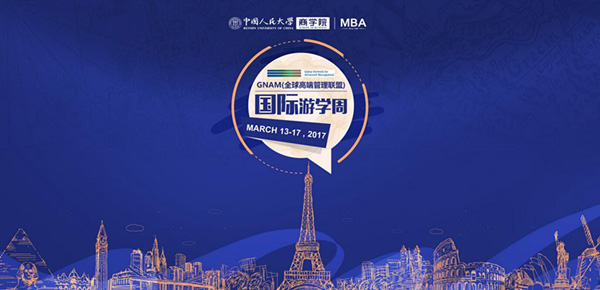
2017年3月13日-3月17日,GNAM(全球高端管理联盟)国际游学周如期而至,前往各国的MBAers各就各位,丰富多知的游学周大幕慢慢拉开~


每年的3 月,全球高端管理联盟院校的MBA 学生将有机会在不同的国家进行为期一周的实地考察与实践类学习,并与当地的企业家、政府官员及商学院师生深入交流。



今年共有75名MBA学生赴美国、加拿大、以色列、智力、南非、巴西等10余个国家进行为期一周的交流访问。


与此同时,联盟院校的MBA 学员也会同期来访,参加由人大商学院承办的国际交流周活动, 超过9个国家的52位MBA/EMBA学生进行学习交流。本期游学周主题为“From 'Made in China' to ‘Invented in China'”,共举办10场主题讲座并走进安泰科技、百度、京东三家企业参观访问。我院马志德、杜文宇老师担任该活动主任。

2017国际游学周各国速递
Yale SOM, USA
"Company visits to private equity firm Warburg Pincus and mass media group Hearst Corporation"

EGADE Business School, Mexico
"Day trip to downtown Monterrey to learn the history of Latin America"

Indian Institute of Management, India
"Students visited local e-commerce company Chumbak, which sells Indian trinkets with a splash of color and modernity."

Cape Town Graduate School of Business, South Africa
"Touring Vodacom, South Africa's largest network service provider, and hanging out with RBS MAM students."

FGV-EAESP, Brazil
"Lectures and discussions on developing strategies for multinational companies entering the Brazilian market and visiting a local comestics company called Natura."

Sauder School of Business, Canada
"Wonderful visit to the Port of Vancouver where their definition of sustainability focuses on delivering economic prosperity through trade, maintaining a healthy environment, and enabling thriving communities."

HKUST, Hong Kong
"Interesting lectures and company visits created an enriching week for our students."

Hitotsubashi ICS, Japan
"Interacting with Pepper, a robot that speaks over 20 languages, at SoftBank Robotics. "

Seoul National University GSB, Korea
"Learning about US/Korean business relationships from AmCham Korea and company visits to LG Display and Hyundai."

PUC, Chile
"Professor Carlos Budge from Stanford University giving a lecture on Derivatives in LATAM and learning about Sura Chile's business model and strategies from CFO Robert Roggen of Sura Asset Management."

Renmin School of Business, China
"Over 40 global network students visited Baidu and Jingdong"



